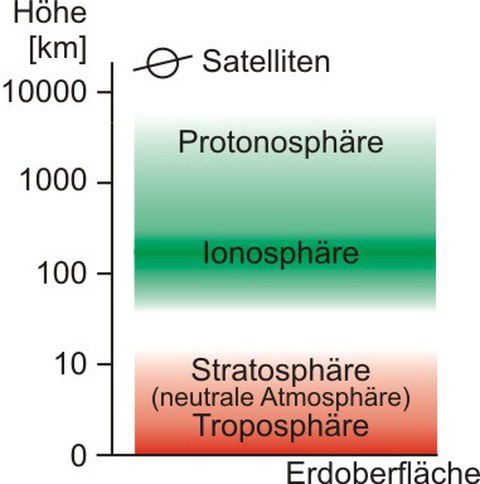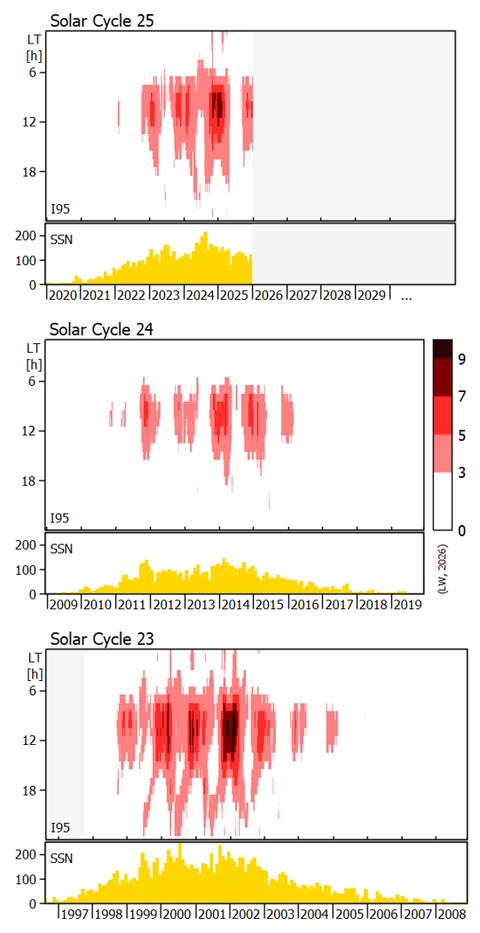Monitoring the Atmosphere by GNSS
Atmospheric signal delays mainly caused by the specific properties of ionosphere and troposphere affect geodetic GNSS applications. A very large portion of these delays can be mitigated by multi-frequency observations or by application of correction models. Nevertheless, the remaining atmospheric delays affect the geodetic results. The goal is to improve algorithms and modelling to further capture and mitigate atmospheric effects. At the same time, the modelling results are an abundant resource for atmospheric monitoring and research.
I95 Index
As a byproduct of improved ionosphere modelling in regional networks of GNSS reference stations, the I95 index provides information on ionospheric effects on precise relative GNSS positioning. Large I95 index values indicate time periods or regions with increased problems for RTK positioning (delayed ambiguity fixing, reduced coordinate accuracy).
In Central Europe, hourly I95 values for the years since 1997 clearly show three major temporal influences of the mid-latitude ionosphere on RTK: the approximately eleven-year solar cycle, and annual and diurnal periods.
Recent hourly I95 index values are available from the website of LGLN, Hannover on their I95 web page.
Publications
Wanninger, L, Thiemann, K. (2025): Evaluation of GNSS ionosphere prediction models Klobuchar‑GPS, NTCM‑G, and BDGIM: methodology and results for 2021–2024. GPS Solutions, 29:144. DOI 10.1007/s10291-025-01905-w
Wanninger, L. (2023): Die befleckte Sonne - GNSS-Vermessung unter erschwerten Bedingungen. FORUM (BDVI), Heft 2/2023, S. 40-42
Wanninger, L. (2004): Ionospheric Disturbance Indices for RTK and Network RTK Positioning. Proceedings of ION GNSS 2004, Long Beach, CA, S. 2849-2854.


